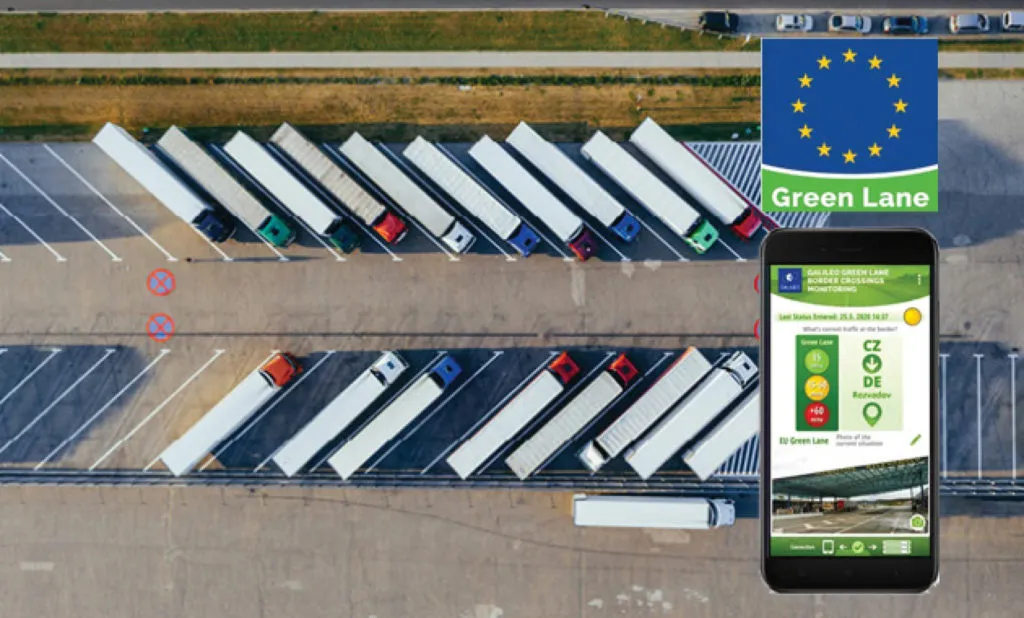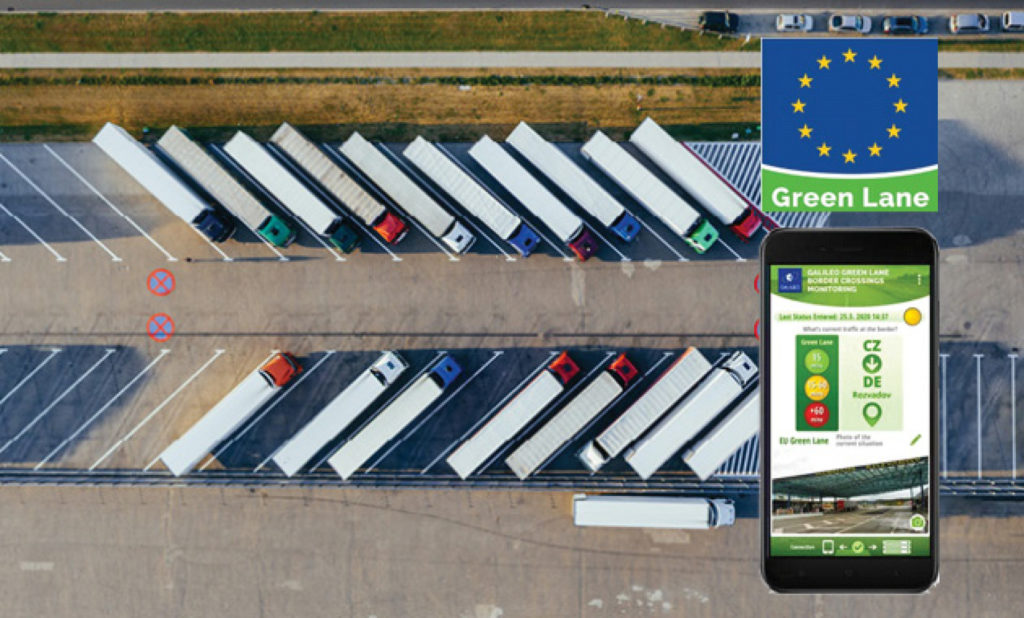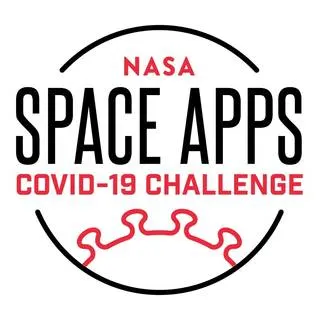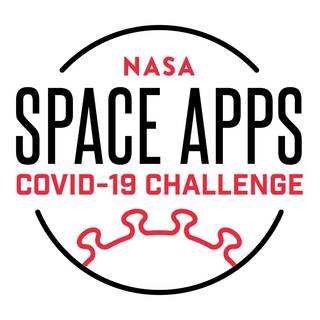
How Galileo is enabling the efficient transit of critical goods in EU
The rapid spread of COVID-19 has forced several EU Member States to either outright close their border with neighboring countries or perform health screening controls at the borders. With travel bans being enforced all across the world, additional checks at the internal borders of EU nations might not be the biggest headache for the general public but this is a huge challenge for freight transport. Every minute lost at the border means delays in the transportation of perishables, medicines, medical equipment and other essential supplies crucial for normal life.
In order to ensure the uninterrupted supply and transportation of essential cargo across the EU, the European Commission requested Member States to designate all relevant internal border-crossing points on the Trans-European transport NeTwork (TEN-T) as ‘Green Lane’ border crossings to guarantee essential products priority access. The expectation from the commission is that going through these ‘Green Lane’ border crossings, including any checks and health screening control, should not exceed 15 minutes. (Link to press release from 23.03.2020: Commission presents practical guidance to ensure continuous flow of goods across EU via green lanes).
15 minutes including any checks and health screening controls sounds like a reasonable tradeoff between health concerns and ensuring uninterrupted transportation of essential goods. But how do you actually monitor that this is really the case or not just a goal on paper without any real-world impact? The answer is Galileo.
Using Galileo to ease pressure at EU’s internal borders and ensuring transparency

Galileo Green Lane app will help reduce freight bottlenecks at EU borders and create transparency regarding waiting times at the border
The Galileo Green Lane app allows users to monitor the freight traffic situation at the designated ‘Green lane’ TEN-T border crossings in real-time and also enables them to anonymously contribute to the status by reporting the traffic as they make their way through the border. This not only Provides border officials and transporters visibility regarding the border situation by allowing them to see which borders are under higher load but also enables them to be transparent and meet the ‘Green Lane’ requirements requested by the commission. (Read: Galileo Green Lane, easing pressure at the EU’s internal borders).
“At the GSA, one of our key roles is to promote the use of Galileo and to address the economic and societal challenges that Europe faces. The European Commission´s Galileo Green Lane initiative fits this profile exactly. By supporting a solution that eases the transport of critical goods across borders, Galileo is making its contribution to help reduce the impact of the coronavirus pandemic on the EU’s economy and its citizens,” -Pascal Claudel, Acting Executive Director at the GSA.
The Galileo Green Lane application developed by the European GNSS Agency with the support of FoxCom, SpaceTec and Sixfold is a wonderful and timely use of Galileo GNSS to solve a clear problem. It’s heartening and encouraging to see the ability of Galileo (and location technology in general) to quickly solve crucial societal problems. Kudos to GSA and the rest of the team for raising to the challenge #strongertogether!
If you enjoyed this article, read more and subscribe to our monthly newsletter!







 US space agency NASA, European Space Agency (ESA), and the Japan Aerospace Exploration Agency (JAXA) are cobbling together to launch a global, virtual hackathon on May 30-31. Called the Space Apps COVID-19 Challenge, the hackathon would see participants use open earth observation data to develop solutions for issues related to the COVID-19 pandemic.
US space agency NASA, European Space Agency (ESA), and the Japan Aerospace Exploration Agency (JAXA) are cobbling together to launch a global, virtual hackathon on May 30-31. Called the Space Apps COVID-19 Challenge, the hackathon would see participants use open earth observation data to develop solutions for issues related to the COVID-19 pandemic.